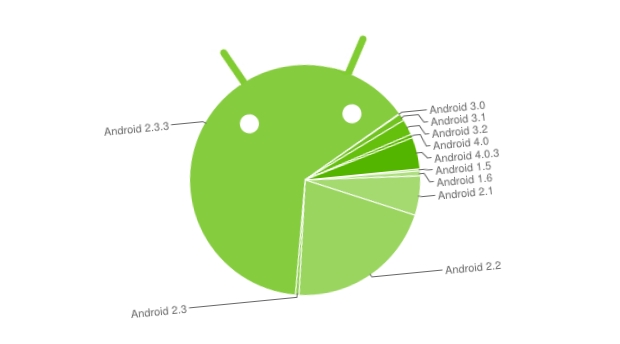Google to centralize Android development and sales

For all its popularity, Android programming, sales, and marketing has been... chaotic. Every hardware vendor makes its own Android mix, which more often than not is based on an older version, and each company sales and markets their smartphones and tablets independently of each other. That may be changing now. According to a Wall Street Journal report, "Google is shifting its strategy for its Android mobile operating system, in a bid to create a united front with smartphone and tablet makers to take on rivals like Apple and prevent wireless carriers from controlling the devices."
Wall Street Journal reporter, Amir Efrati reports that "Google plans to give multiple mobile-device makers early access to new releases of Android and to sell those devices directly to consumers, said people familiar with the matter." In the past, Google would pick a single vendor to introduce major Android updates in lead devices, and then all the other vendors would follow. These devices were then, as now, sold to end-users through wireless carriers or retail outlets.
By the holiday season though, there were be as many as five manufacturers creating a portfolio of "Nexus" lead devices that include smartphones and tablets. While the old sales channels will still be there, Google will sell the gadgets directly to consumers in the U.S., Europe and Asia via its website. These will run on be running Google's next version of Android, Jelly Bean.
Google did not respond to a request for comments.
So who might these companies be? We don't know. At a guess, Motorola has to be in there. ASUS, HTC, Samsung, and Sony Ericsson would also seem like natural partners.
This news comes ahead of final approval for Google's acquisition of Motorola. Many people are speculating that Google is trying to centralize Android programming, sales, and marketing to reassure its partners that Google is going to use Motorola devices to compete with them.
While I certainly think that plays a role, I suspect other factors are involved as well. Android operating system fragmentation is a real problem. The core operating system is always the same, but there are too many shipping versions for end-users or independent software vendors (ISV)s to be happy.
Apple, Android's only real rival, on the other hand, offers a single, unified software stack. Users who buy an iPad or iPhone don't have to worry about it they'll get the newest update. Until Apple stops supporting their particular device, which Apple does do, they'll know that they'll get the latest and greatest version. By contrast, Android's newest shipping version, Ice Cream Sandwich, after first shipping seven months ago, is still on only 5% of Android devices.
Apple is also fighting with Google's Android partners in courtrooms around the world on various intellectual property (IP) issues. A united Android front could potentially, if nothing else, cut down on Google's partners' legal bills.
Put it all together and there are many reasons why a more united Android effort would make sense both for Google and its partners. So, while we don't for certain that is what Google will really be doing, this centralized development, marketing, and sales plan does make sense. If Google is to get this off the ground by the 2012 holiday season, we'll soon see if this indeed what Google has been working on.
Related Stories:
Smartphones: Commoditization looms; shakeout can't be far behind
The Android dilemma: Too much choice, yet not enough
Gartner: Samsung steals Nokia's crown as global phone leader
